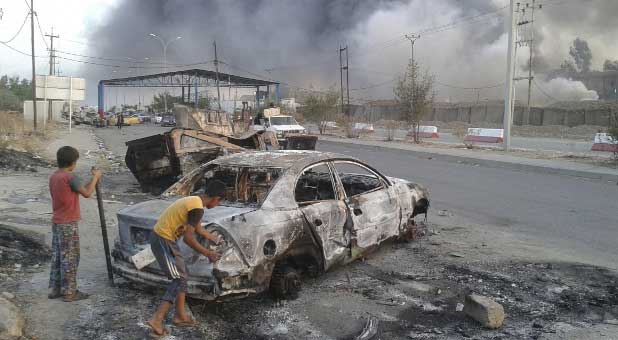Today, the Assyrians are based in northern Iraq’s Nineveh plains, where they have fought to preserve the customs, culture, and languages of the area’s past, despite facing numerous waves of persecution, mass killings, and expulsions since the invasion of Islam in the 7th century CE.
“For hundreds of years Christians have been marginalized in the Islam dominated part of the world. After the fall of Saddam the situation has been devastating for Christian Assyrians and other minorities such as Mandeans and Yezidies,” Nuri Kino—a Swedish-Assyrian Christian who is an independent investigative reporter, filmmaker, author, and Middle East and human rights analyst—told JNS.org.
“More than 60 churches have been attacked and bombed. Rapes, kidnappings, robberies and executions [are all prevalent],” Kino added.
Kino, who has been in constant communication with friends on the ground in Iraq, said that these attacks are all a part of daily life for Assyrians “who don’t have their own militia or any neighboring country to back them up.”
According to Taimoorazy, who has also been in contact with a number of people in Iraq regularly, the situation has deteriorated rapidly since the jihadist invasion.
Taimoorazy said that “water and electricity have been cut, there is a shortage of cooking gas, clean water is running out and there is a fear of an outbreak of illness where the refugees have fled.”
“This is a complete disaster for the wellbeing of our nation,” she added.
Before 2003, it was estimated that around 130,000 Christians lived in Mosul, Iraq’s second-largest city, and only about 10,000 remained before the recent ISIS invasion a week ago. Now, residents say around 2,000 Christians remain in the city. Many have gone to the surrounding countryside or to Kurdistan. Additionally, many are seeking to flee the country all together.











































